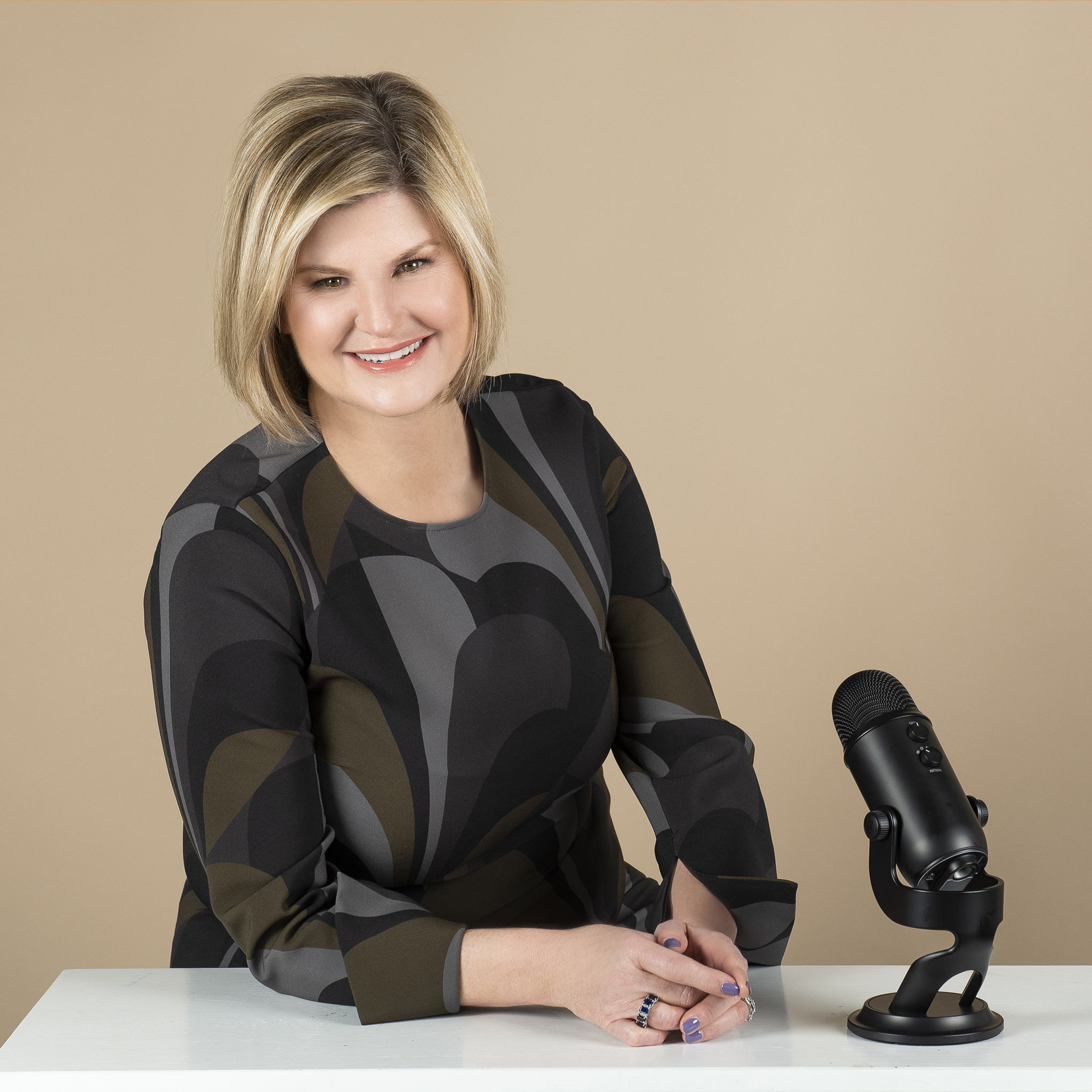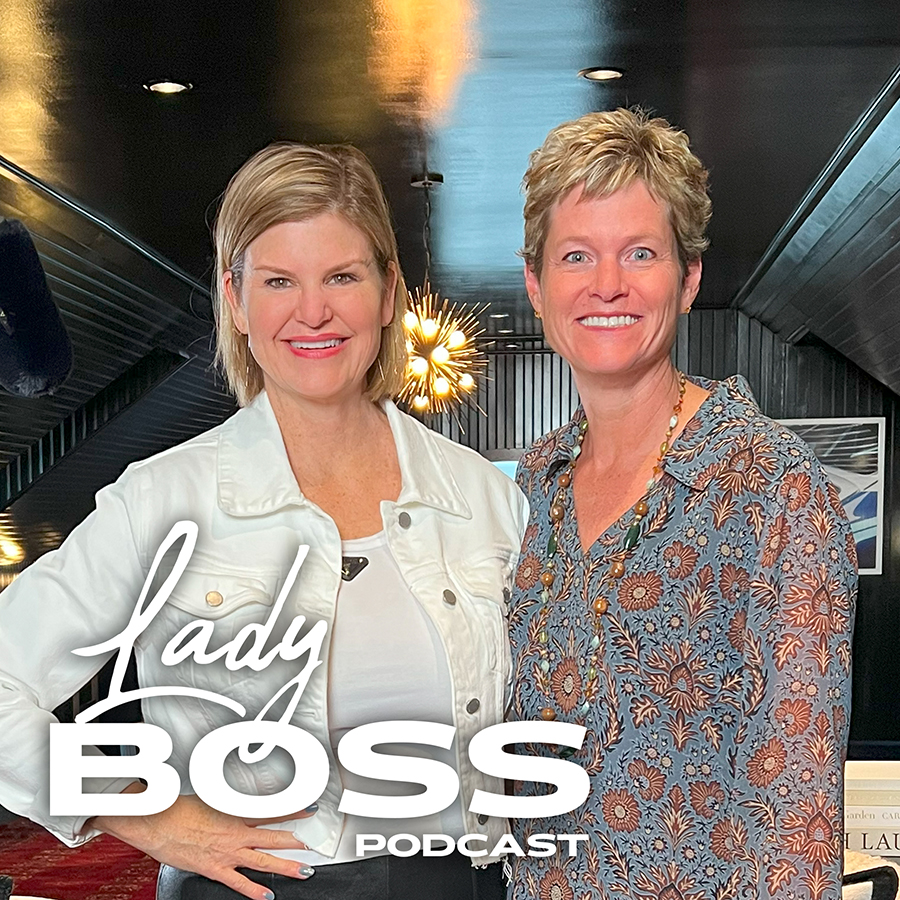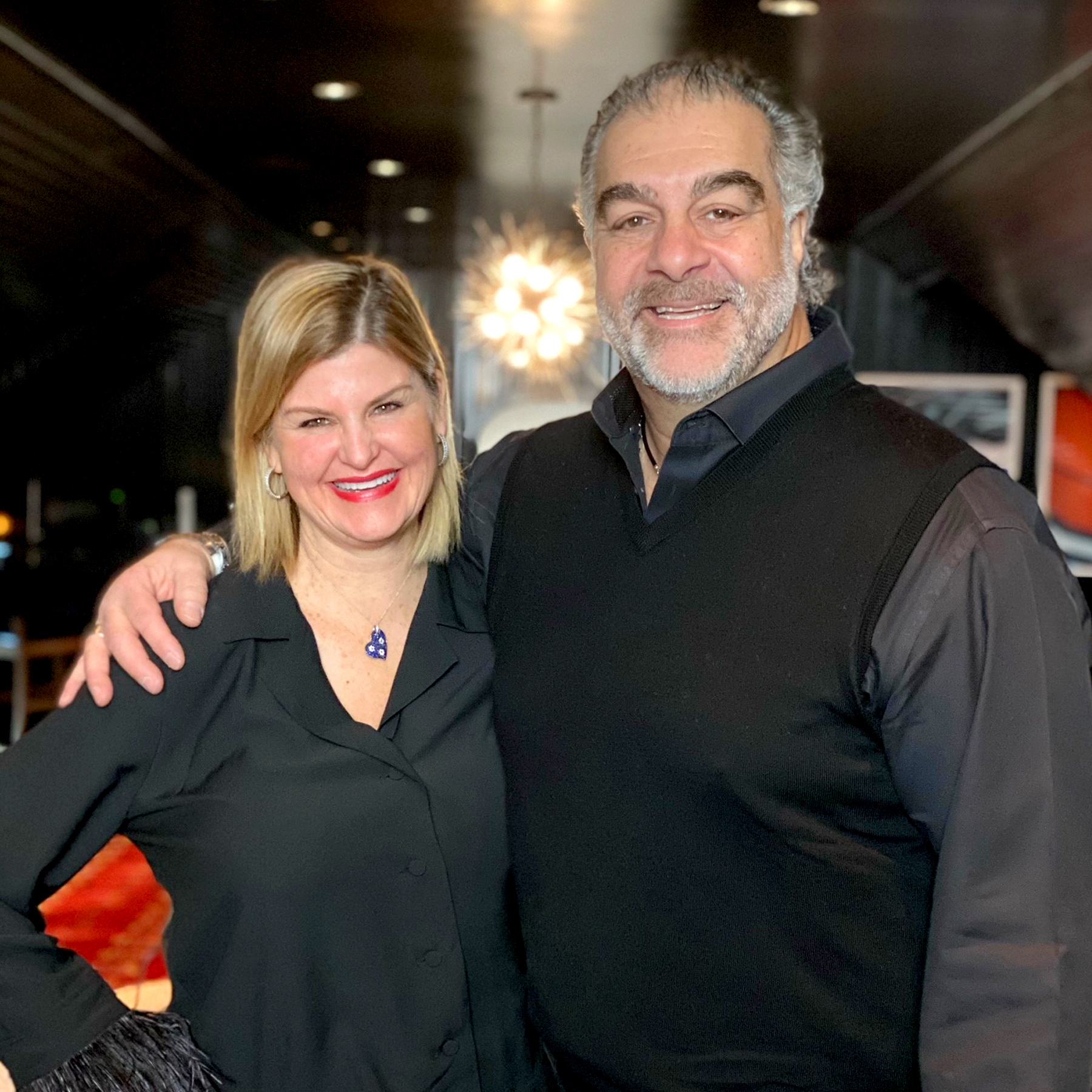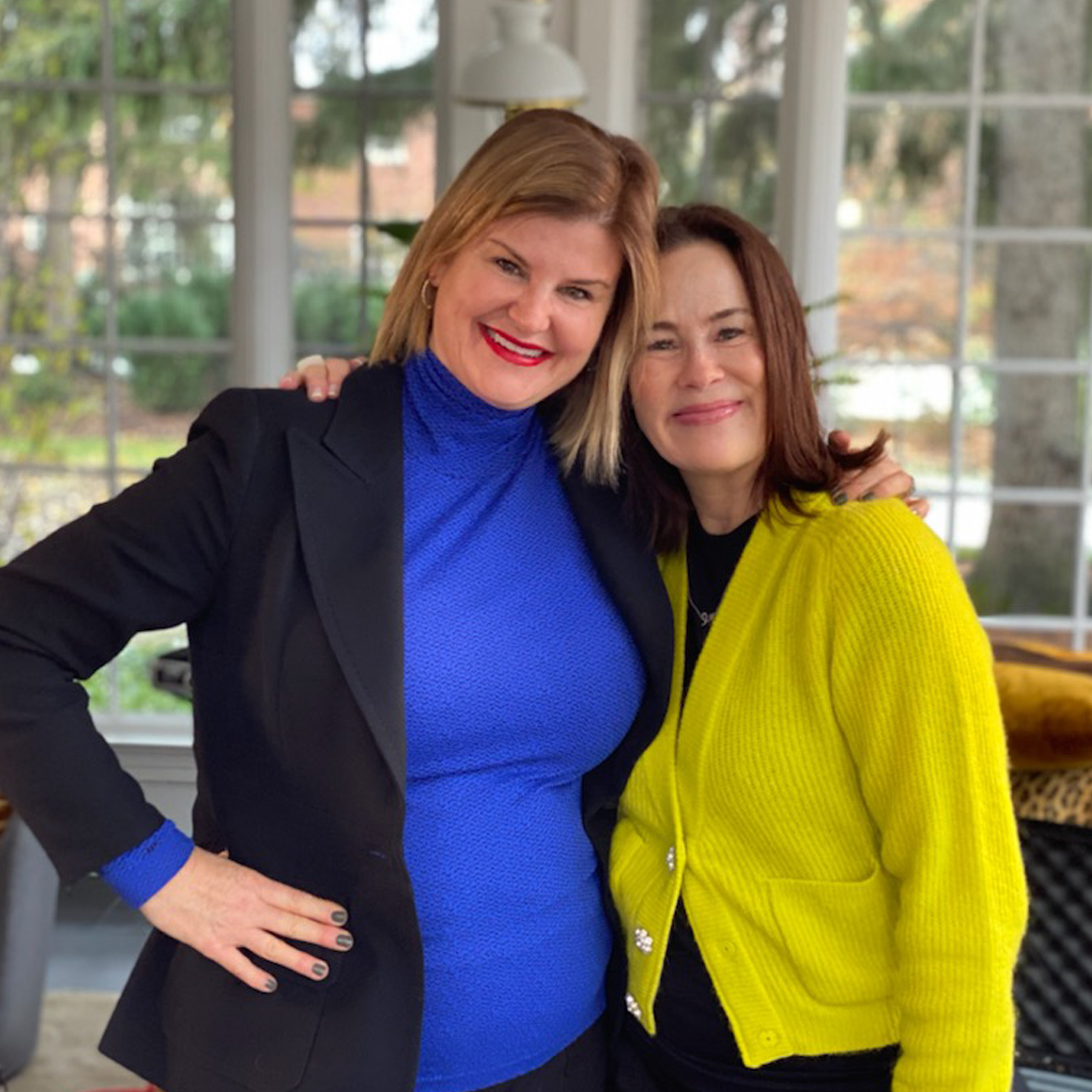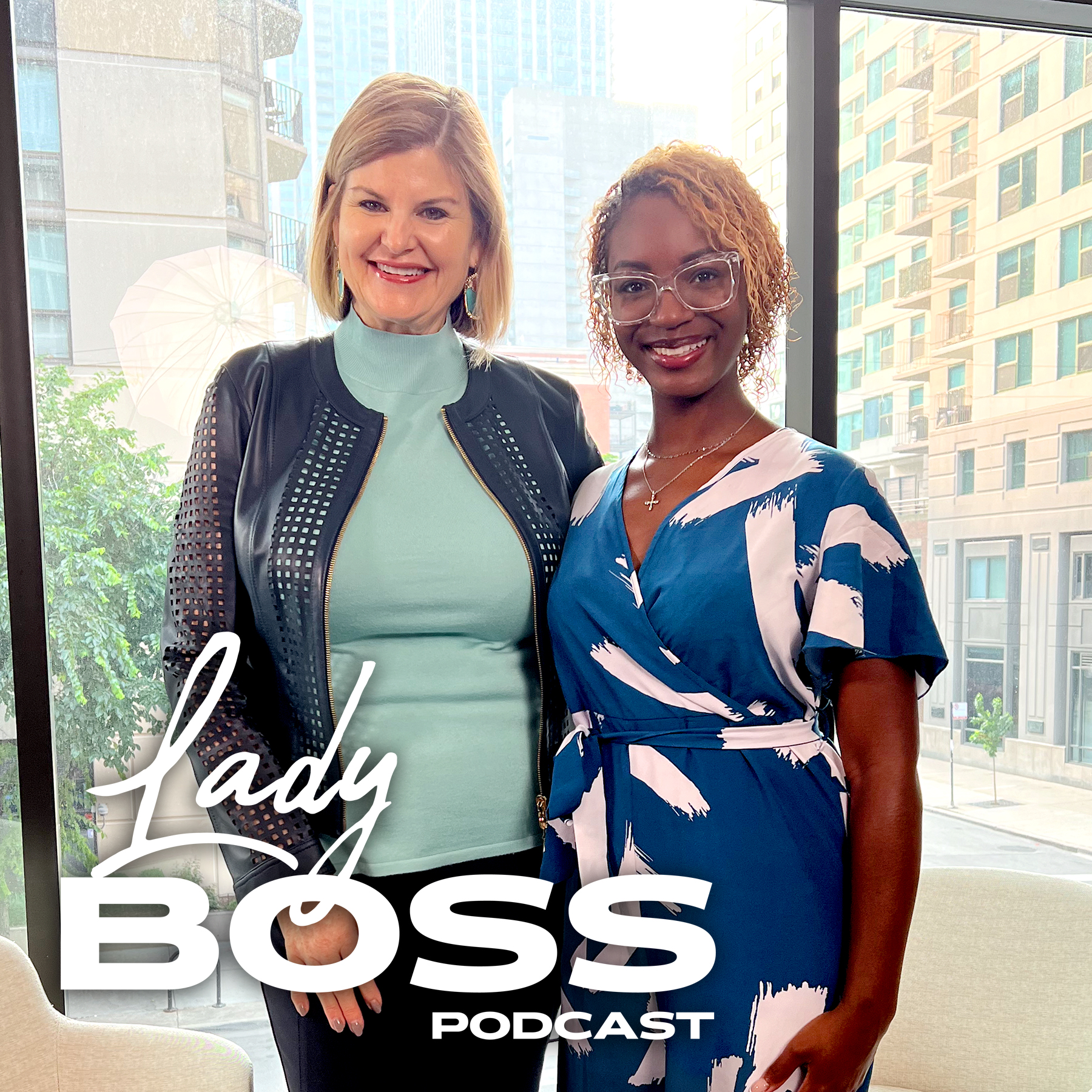Episode Transcript
[00:00:00] Speaker A: On this episode of Lady Boss, Courtney sits down with Amy Riley, founder of Courage of a leader, to discover what it takes to become an effective leader in your company.
[00:00:10] Speaker B: So excited to finally sit with you in person. And kudos to you because you feel exactly the same way as you do online. And I think that's the sign of somebody very authentic, and I love that Courtney.
So I love courage of a leader, which is your company's name, because I think leadership does take a lot of courage.
Can you tell me in your practice what you think the real tenets of a successful leader are?
[00:00:37] Speaker C: Yes, I've been doing this leadership development game for over 20 years now, and it began to emerge every time I was impressed or inspired by a leader. I thought, they are demonstrating true courage in this moment.
So I think it's about the courage to be authentically. You show up, be genuine.
Right. We can tell when someone is doing all the right seemingly behaviors, but we don't really believe what they're saying to us. We can feel like this is not genuine, this is not quite right. This feels put on. So being courageous to do the work so that you can show up authentically to handle whatever conversation you're having with.
[00:01:27] Speaker B: The people across from you, I think it's counterintuitive. I think a lot of people think that if you show the real you, they'll know you're vulnerable. They'll know you feel like an imposter sometime. Or they'll know that you have fears and doubts. When you show them that they're really a lot more able to listen to what you're saying because you're more relatable and real.
[00:01:47] Speaker C: Absolutely.
And that's exactly it. And you want your team members to show up real and let you know what they're not confident about, what they're concerned about, what they're excited about. Right. What they want to do. So when you give that, then you get that in return.
[00:02:04] Speaker B: Okay. So there's no shortage of consultants in this world and people that want to coach. You pick the top of the pyramid of people you want to work for, and lots of people calling them. How does the courage of a leader actually close business?
[00:02:20] Speaker C: Yes. Okay.
Couple of ways for business development. One is I have business partnerships.
I have partners that have global set of associates, and they're going after the Fortune 500 companies. And I've been working with a number of companies, a couple in the UK, one in Australia, one in Netherlands. And I've been working with them for some time. So I lead some of the projects.
[00:02:55] Speaker B: So these associates are lead generators. Like, there are people that give you leads or these are relationships you've had a long time and you go out and ask for more business. I'm trying to understand, how do you differentiate?
[00:03:08] Speaker C: Yeah, how I differentiate. And any business partners that I work with operate in the same way. I bring customized solutions. Who are you? What do you need? Where are the leaders at now? Of course, I bring an arsenal of materials and ideas and things that I've done with different companies in different industries, but I'm not trying to always fit the same peg into the same peg board. Right.
[00:03:40] Speaker B: Every business, every person's at a different place and customizing the solution. And I think if you looked at leadership traits, being nimble, knowing how to read, this person on your team, this person on your team, this person is something that's definitely served me well over the time. So I believe it's a whole bunch of different formats.
You get into a company, you get a project, and how do you or those people gauge success and what success looks like?
[00:04:08] Speaker C: Yes, I like to talk up front about what are we trying to achieve here? Why did you invite me into these conversations? Why are we looking to do development with the leaders? Do we need more productivity? Do we need more sales? Do we need to operate more efficiently? Do we need to be more innovative? So we need leaders who can create safe environments where people feel like they can take a risk. And if those things are happening, what metrics are going to move?
[00:04:39] Speaker B: Okay.
[00:04:40] Speaker C: Right. And then look at those metrics. I mean, of course, along the way, we can be asking leaders, do you have new ideas? Are you feeling more confident? Do you feel like you're better able to motivate and engage your team? How much time are you saving by implementing these ideas and then assessing the initiative overall? Are we moving those bottom line metrics in the organization?
[00:05:05] Speaker B: Why do you think the companies, at the size and scale you work for, they could hire a full time person in the training and development role, so to speak. Why don't they? And what's better about your model?
[00:05:16] Speaker C: Yeah, well, sometimes they do, and sometimes that's who's bringing me in. Right? There's a new initiative, or we've got to figure out this new problem, or how do we best use our limited dollars and resources, or we want some external eyes on this.
Sometimes those folks exist in the organization and. Yeah, and sometimes they can accomplish that with project work, and then their internal folks can keep implementing what we create.
[00:05:51] Speaker B: So do you feel like you're a consulting that does the work because I think a lot of companies, a lot of people get stuck on the doing part, the execution part, so we can all stand at our pulpit and tell our people to do a whole bunch of stuff, and then they go back to their desk and like, get her off my back. I'm going back to doing what I do. How do you actually do the work of what you're prescribing?
[00:06:18] Speaker C: Yes, I partner with the clients that I work with.
I hope and I believe that they feel that. Right. I care about. I want to understand what they're really trying to accomplish and what they need from me and what they don't need from me, because sometimes they've got in house capabilities. How do I supplement that? How do I fit in in the most effective way? And I want to have transparent conversations about how that looks and what would be the best way for us to work together. Now, lots of times I'm brought in for the strategy, right? Let's make sure that we're bringing the thinking. Okay. Sometimes they start running down a rabbit hole and I'm like, wait, let's back up. Is that the right path? What really are we trying to achieve here? Will that get us there? Right?
Are there other paths? We need to go down here too, to make sure that we are creating real, sustainable, reinforced behavioral change.
[00:07:32] Speaker B: So in a sense, lots of us run at a fast pace. And I think when you run at a fast pace, sometimes your creativity doesn't come out because you're doing a checklist. I talk about this a lot. So in a sense, they're hiring somebody who doesn't have a full plate of to dos to come in and help do the thinking so that the people with the very full plate of to dos can sort of absorb some of that, incorporate it into their day job and move the needle forward.
[00:08:02] Speaker C: Yeah, that's a great way of saying it.
[00:08:04] Speaker B: Cool.
[00:08:04] Speaker C: As you were saying that, I was also thinking like, oh, yeah, sometimes I feel like that, like my plate is full. I need to practice what I preach here. When I talk to leaders and say, carve out that reflection time, carve out that planning time. Where are you doing your strategic thinking? You're looking forward.
And I know there are times where I need to practice what I preach.
[00:08:29] Speaker B: It's something you got to put on your calendar. It is hard to do.
Okay. And Amy, lots of things I experienced, the workforce of today, the younger people, maybe sub 30 years old, they're different than we grew up. They're maybe needier, a lot more things that are on their mind than the workers older, where they were glad to have a job, glad a place to go. How do you tackle those different generations in a workforce?
[00:08:57] Speaker C: Yeah, I think it comes down to the leaders connecting with and understanding each individual.
What lights them up? What do they care about?
A lot of the newer folks to the workforce really care about having meaningful work. Right. Feeling like they're making a difference and they've got great ideas. Right. How and where and how do we tap into that and incorporate what they've got, make it feel safe for them to do so, rather than feeling like you're not operating in the ways that we're used to, folks operating in the workforce. Right. How do we adjust and adapt to get the most out of every team member that we have?
[00:09:52] Speaker B: Yeah, that's a tough model to scale.
You get a bigger organization and then all the people.
Robots is another answer.
[00:10:06] Speaker C: Well, then it's like, how do the leaders of leaders be leaders of leaders, right. And engaged the next level of leadership to be connecting with each of their direct reports in a meaningful way. And how are we sharing that information up and down and across?
[00:10:27] Speaker B: Yeah, it's funny. After I sold my business, I worked inside a public company, and they had absolute droves of company like you with a big spotlight on the high pros. And we were flown all over the world and literally more like sessions off sites like you've done a lot of.
And it's interesting because that company, one of the consultants, is the one who actually gave me the idea to start my holding company. And of course, I'm not sure that my company was paying all that money to have me developed into this master leader, and yet their developer was giving me the ideas to start what I'm starting today. So it's funny how sometimes people like you can inspire the people that you're working for, inspire them right out the door.
[00:11:17] Speaker C: It has happened.
[00:11:18] Speaker B: Yeah. Why is that?
[00:11:23] Speaker C: Often inside.
No, always inside of the coaching that I'm doing. In leadership development programs, I always insist on confidentiality.
[00:11:35] Speaker B: Sure.
[00:11:36] Speaker C: Because I want that coachee to be able to show up and say whatever is going on with them. And sometimes where they're at is not the right fit.
[00:11:47] Speaker B: Right fit?
[00:11:48] Speaker C: Yeah, it's not the right fit. And I will do right by the coachee. And I do ultimately believe. I know this can sound like altruistic thinking, but I do ultimately believe when we get people in the right spots, whether it's another spot inside the organization or moving out of the organization, well, then you can get someone who is a better fit and actually really excited and well suited to do the job that you have.
[00:12:21] Speaker B: Yeah, I mean, it's a great idea, but when the boss is paying you. Yeah, I get it for sure. But I think not everybody comes from the full abundance play and that you have to have the abundance mindset to realize that.
[00:12:36] Speaker C: Yeah, it's true. I've been lucky. I think organizations and senior leaders, execs who are investing in six month, nine month, year long programs and they know that they've got 30 leaders going through annually.
You want to see the great numbers that a vast majority of those folks are being promoted and contributing in new ways to the organization. And there's also going to be a percentage that get developed and take that development elsewhere.
[00:13:10] Speaker B: Yeah. Amy, can you summarize for us what makes a great leader?
[00:13:14] Speaker C: Yeah, I think the authenticity related to that is the transparency.
Willing to say what needs to be said, deliver the tough message. I think Brene Brown says that clarity is kind.
And I really believe that we've got to give folks the feedback, the information about their performance, and give them everything that we can to support them to perform well in the future.
I also talk to leaders about their leadership purpose. I call it a leadership legacy. When we know what we're about, what we're committed to in the bigger picture, that has us playing bigger, playing bolder.
You've lived into your leadership legacy, setting big goals for yourself. Right. And it pulls us forward in a new way when we say, what would my leadership legacy want me to do here? Rather than I'm going to be stifled by normal human considerations and concerns and that being willing to be bold and go for it.
Being a great leader is not always about batting 1000%.
Sometimes I said it to a leader yesterday. Sometimes it's about throwing spaghetti at the wall. Here's what I'm trying to influence. Here's what I'm trying to help this team member do. Here's the direction I'm trying to take us, and it might work and it might not. But if we know that we're bringing our best judgments, our best intentions, our skills to the situation and doing the best that we can, then we can feel good about who we are as a leader. When we put our head on the.
[00:15:05] Speaker B: Pillow 100% at the end of the day, not one of those things did you say was about did we just succeed? Because not all leadership is succeeding.
Good leadership is often failing because then you know you're going fast enough.
[00:15:18] Speaker C: Yeah, you're great at that.
[00:15:20] Speaker B: I just grew up with the wealth of Wall street. And I'm like, yeah, I think you're in a generation. I grew up with a hard, very direct dad doesn't fluster me to hear feedback. I'm like, okay, that's got to get better. 1% better every day. I went to work for a very tough. Never say thank you was fine by me because I got so good. I got so good. I mean, he paid me with thank yous. It was fine. I didn't need thank you. I wasn't there for atta girls. Feels like today everybody wants an atta girl, atta boy.
And that's okay. But probably we're playing it safe, not very courageously, and not making mistakes, which I have known in my career to be the whole secret sauce to success.
[00:16:13] Speaker C: I got to tell you, after the great resignation, I had so many people coming to me and going, how do we have a great culture? And I saw that leaders were afraid to hold people accountable. They were afraid to challenge people. And I believe that there's different ways to challenge people. Right. There can be the, this is what you need to do. I'm not giving you a lot of feedback, but we can also tell people, like, what we think is possible, and this is what we need. And this is the goal for the quarter. You're in or you're out. Let's go for it.
And I don't think anyone.
The kinds of employees that you want are not going to be motivated by just being left to not being challenged, not being told, like, hey, here's the goal. Here's the commitment. Here's what we want to achieve. And I believe you can do it. Let's pull together. What are your best ideas? Let's do it.
If your employees are not motivated by being challenged in the right ways, then those aren't the employees that you want.
And it was frustrating me that there was like, how do we keep them?
[00:17:35] Speaker B: Right?
[00:17:35] Speaker C: We're so afraid about them leaving.
[00:17:38] Speaker B: Yeah, no, they might not be on your team, and you got to find somebody that is on your team. And I had a great experience at Covid. When I had bought the business, there were some super skilled people in the organization that were the best craftsmen, et cetera, that we had. And they never once in four years said hi to me. I would walk by and they would head down.
[00:18:01] Speaker C: Wow.
[00:18:02] Speaker B: But they were the best per their managers. They had best cabinet maker, best framers, the best people we had. And the day of COVID when we decided who was going to come with us on our essential journey and who wasn't I said, first thing, we're getting rid of those people. Now, they weren't my direct reports, but I told my leaders, I said, you know what? We will never make this mistake again. We will never hold on to people that are good craftsmen but don't have the culture fit. And it was life changing. The oxygen got better in the room, the air got better, and it was proof to my leaders to not drag ass on hiring. Getting rid of people that don't fit your culture. And I literally will insist to people that I work with that they move on. People that aren't a culture fit because they're impacting and affecting the rest of your company.
[00:18:48] Speaker C: Yes.
[00:18:49] Speaker B: Just bringing down your profits, that's a.
[00:18:51] Speaker C: Really powerful message, and I see it time and time again. Oh, they're really good at this, all right. Or they're the scientist that knows this, but they're treating other people like crap.
[00:19:01] Speaker B: And we let it stay. So I feel like if we lose that message in business where everything's so soft, everything's so politically correct, everybody wants this balance and all this, then we'll be mediocre. And it doesn't all have to sound like Wolf of Wall Street. I get it. That works for a lot of people, though. And we can't forget that because people who hear that politically correct, everything's okay, they're not going to be there. And a lot of times, those are some big drivers.
[00:19:28] Speaker C: Yeah.
I'd say find out what the person's strengths are. Find out what they're interested in. How can you capitalize on that but still challenge? Yeah.
